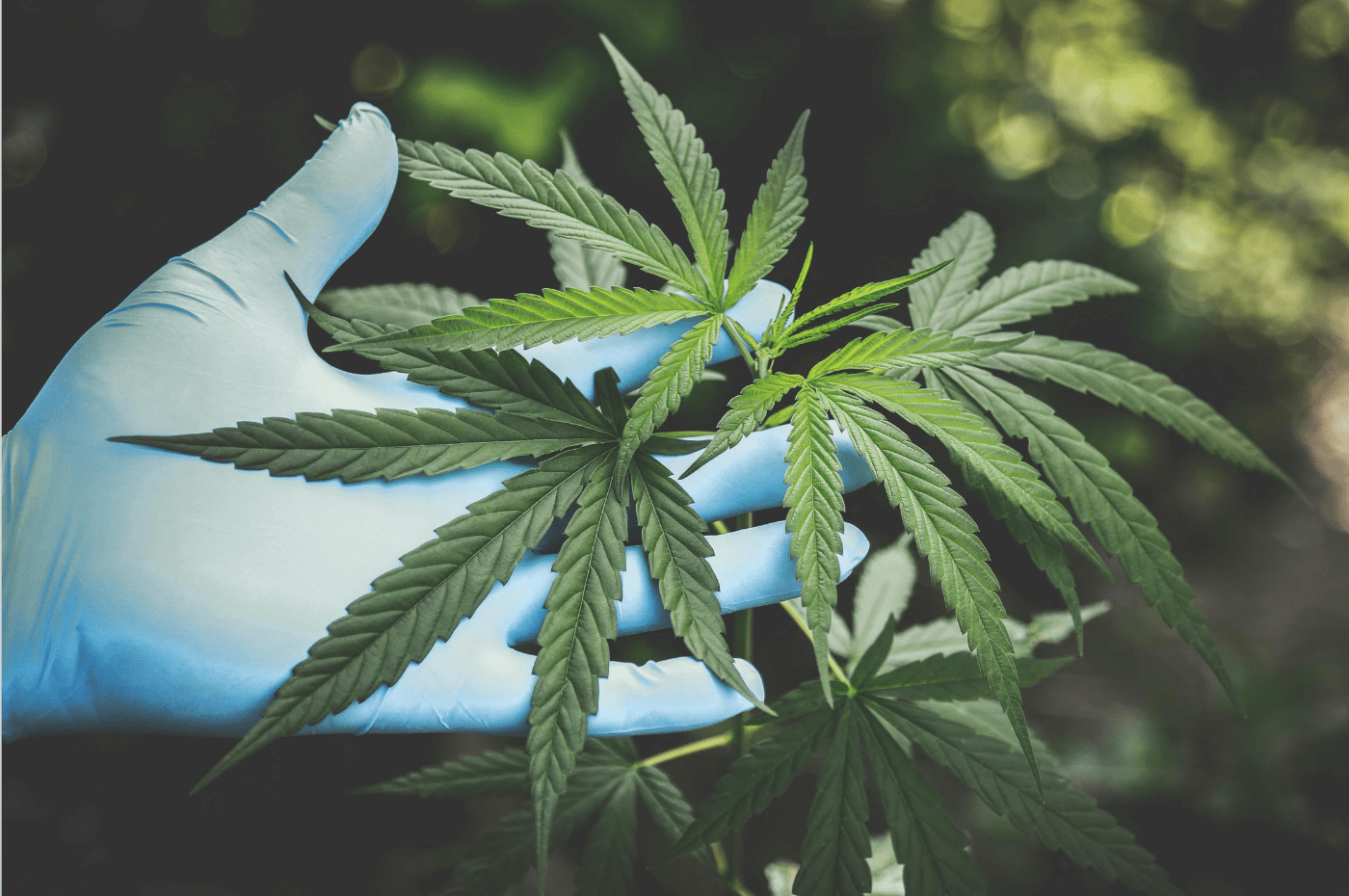Nicotine addiction, primarily due to cigarette smoking, has been a persistent health issue worldwide. The challenge of quitting smoking has led many to seek alternative methods, such as nicotine replacement therapy, counseling, and even hypnosis. Recently, CBD (Cannabidiol), a non-psychoactive compound found in cannabis, has gained attention as a promising aid in helping people quit nicotine.
How Does CBD Works in the Body
CBD is one of the many compounds found in the cannabis plant, but unlike THC (Tetrahydrocannabinol), it does not produce a high. Instead, CBD interacts with the body's endocannabinoid system (ECS), which plays a role in regulating mood, stress, pain, and appetite. CBD can influence the ECS and other receptors, which may help reduce cravings, alleviate anxiety, and offer a sense of calm—all essential factors in quitting smoking.
Top 4 Benefits of CBD for Men and Women
Reducing Nicotine Cravings
A key aspect of nicotine addiction is the body's dependence on nicotine. A study conducted by researchers at Washington State University found that CBD could inhibit the metabolism of nicotine. The study revealed that CBD inhibits the activity of CYP2A6, an enzyme responsible for breaking down nicotine in the liver. By slowing down nicotine metabolism, CBD could help curb the need for frequent nicotine intake, which might reduce cigarette cravings over time.
In simpler terms, CBD's effect on nicotine metabolism might mean that smokers experience fewer urges to smoke. Research suggests that over 70% of nicotine is metabolized by CYP2A6, making CBD's role in inhibiting this enzyme a significant finding in the context of quitting smoking.
Managing Anxiety and Stress
Many people smoke as a way to cope with stress and anxiety. When trying to quit, these feelings can intensify, making it even harder to stay smoke-free. CBD has well-documented anxiolytic (anxiety-reducing) properties, which can help reduce stress levels. By calming the nervous system, CBD may help individuals cope with the withdrawal symptoms that come with quitting smoking.
For some, smoking becomes a way to manage daily stress, creating a cycle of dependency. CBD, with its calming effects, could serve as a non-addictive alternative to relieve anxiety and break the reliance on cigarettes.
Mimicking the Habit of Smoking
One of the challenges in quitting smoking is the habitual nature of the act itself. Many people are used to the physical action of holding a cigarette and inhaling. Vaporized CBD can mimic this action, allowing individuals to inhale CBD vapor without the harmful effects of smoking tobacco. The act of inhaling CBD could potentially replace the habitual behavior of smoking, helping smokers transition away from nicotine while still engaging in similar behavior.
Anti-Inflammatory Properties
Chronic smoking can lead to inflammation and damage to the lungs. CBD is known for its anti-inflammatory effects, which may help in reducing lung inflammation and promoting healing. Quitting smoking can be tough on the body, and CBD’s anti-inflammatory properties may ease some of the discomfort associated with the process.
Research also suggests that CBD might help reduce the impact of long-term smoking by alleviating lung inflammation and supporting respiratory health, making it easier to sustain a smoke-free lifestyle.
What Research Says About CBD for Quitting Smoking
Although research on CBD’s role in helping people quit smoking is still in its early stages, several studies show promising results:
Washington State University Study: Researchers found that CBD can inhibit the activity of CYP2A6, the enzyme responsible for breaking down nicotine. This reduction in nicotine metabolism could mean smokers feel less compelled to reach for another cigarette.
2013 Study on CBD and Cigarette Consumption: A controlled study in 2013 found that smokers who inhaled CBD significantly reduced their cigarette intake by 40% during the treatment period. Participants who were treated with CBD showed a decrease in cigarette use, while those given a placebo showed no reduction. This study suggests that CBD might be effective in helping people reduce their reliance on cigarettes over time.
Reduction in Cravings and Anxiety: Research indicates that CBD may help reduce cravings and alleviate anxiety, both of which are common challenges in quitting smoking. A reduction in these symptoms can improve the chances of success for those trying to quit.
While these findings are promising, more research is needed to establish a clear link between CBD and smoking cessation. Larger clinical trials and long-term studies will be crucial in determining how effective CBD can be as a quitting aid and the ideal dosages for this purpose.
Is CBD Addictive?
One concern with using CBD to quit smoking is whether it might lead to another dependency. However, the World Health Organization (WHO) has stated that CBD exhibits no effects indicative of any abuse or dependence potential. Unlike nicotine, which is highly addictive, CBD is not habit-forming. Side effects of CBD are generally mild and temporary, including fatigue, dry mouth, and changes in appetite.
This makes CBD a potentially safe and non-addictive option for those looking to quit smoking. By using CBD, individuals may avoid the risk of dependency associated with other substances, such as nicotine replacement products.
Best Ways to Use CBD for Quitting Smoking
There are various ways to incorporate CBD into your routine if you're trying to quit smoking:
CBD Oil
Sublingual CBD oil drops are absorbed quickly and can be taken directly under the tongue. This method allows for easy dosage control and is ideal for individuals looking for a straightforward, non-inhalable option.
Vaporized CBD
Inhaling vaporized CBD is one of the fastest methods to experience its effects. For those who miss the act of smoking, CBD vape pens may provide a similar experience without the harmful effects of nicotine and tobacco.
CBD Gummies and Capsules
Edible forms of CBD, such as gummies and capsules, offer a slower release of CBD into the system and may provide long-lasting effects, which can be helpful for managing cravings and stress throughout the day.
Topical CBD
While not directly linked to smoking cessation, topical CBD products can be used to alleviate physical stress or anxiety. Applying CBD to the temples or neck may provide a calming effect without ingestion or inhalation.
Other Methods for Quitting Smoking
While CBD shows promise as a smoking cessation aid, it may work best when used alongside other methods. Quitting smoking often requires a multi-faceted approach that includes:
Nicotine Replacement Therapy (NRT)
Options like nicotine patches, gums, and lozenges provide a controlled dose of nicotine without the harmful chemicals in cigarettes. NRT can reduce withdrawal symptoms, which can make the quitting process more manageable.
Counseling and Support Groups
Behavioral counseling and support groups offer valuable guidance and accountability, helping individuals understand their triggers and develop coping strategies.
Family and Social Support
Informing friends and family about your goal to quit smoking can provide additional motivation and support. They can help you stay accountable and remind you of your progress.
Quitting smoking is a challenging journey that requires more than just a single tool or treatment. Using a combination of CBD, NRT, counseling, and support networks can improve the likelihood of success.





Leave a comment
This site is protected by hCaptcha and the hCaptcha Privacy Policy and Terms of Service apply.